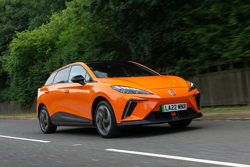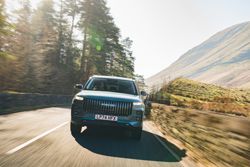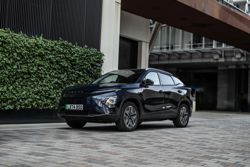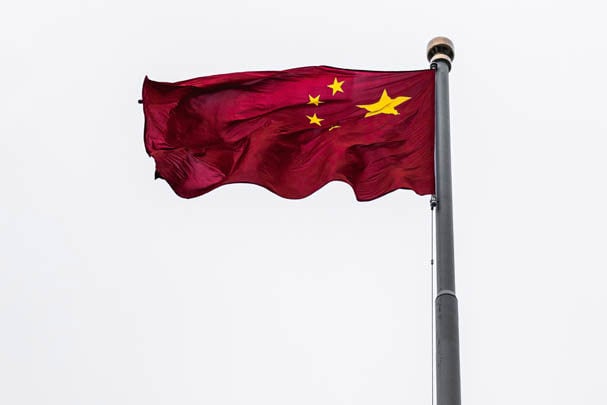
China is a country that’s often clouded in mystery for us in the UK, but if there’s one thing we’ve learned in the last couple of years, it’s that they make very good (and affordable) electric cars.
Brands like BYD, MG, and Jaecoo are quickly making their presence known, and they’re no longer just knocking on the door, they are booting it down.
Thanks to competitive pricing, impressive technology, and excellent powertrains, Chinese EV brands are amongst the fastest-growing in the UK car market. As of June, Chinese brands have registered nearly 50,000 new cars in the UK in 2025, and BYD has seen an increase in sales of 630% (SMMT).
But what’s behind their success, what brands are standing out, and more importantly, what does it mean for UK drivers? We discuss:
In days gone by, the UK was a major force in car manufacturing. But unfortunately, the glory days are somewhat over. Now, in the era of electrification, there’s a clear gap in the market where British drivers are seeking affordable, tech-savvy, and reliable electric cars.
Up step Chinese EVs.
Backed by smart design, heavy government backing, and an ability to scale production at lightning speed, Chinese brands are quickly gaining momentum in the UK.
Take BYD, for example. Founded in 1995, the brand was almost unheard of just a few years ago. In 2024, they sold just 1,611 new cars in the UK, but fast forward to April 2025, and they’ve already surpassed the 10,000 mark!
One of the biggest drivers of this success? Price. At a time when every penny counts, Chinese EVs are delivering strong specs, modern designs, and a solid electric range at a lower price than their competitors.
“Chinese EVs have come a long way in a short time. Drivers are starting to judge these cars on merit, not origin. With a growing brand presence, they’re becoming a genuine alternative to household names.”

Chinese car brands are growing fast, and some have already taken to the UK market like a duck to water. Whether you’re browsing lease deals or just curious what’s out there, here are the key players:
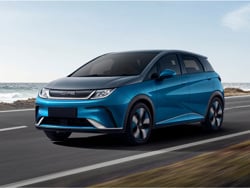
BYD
One of the fastest growing EV brands in the world, BYD is known for its excellent battery technology, impressive range, and competitive price. BYD is doing so well in fact, that in April 2025, they surpassed Tesla’s European sales for the first time.
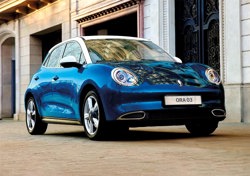
GWM
GWM was one of the first Chinese manufacturers to arrive in the UK with its ORA 03 (formerly Funky Cat), a unique and affordable city car. Since then, it’s established itself in the UK and is continuing to expand.
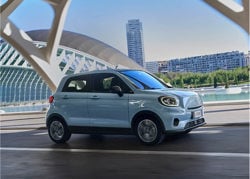
Leapmotor
Leapmotor is a new player and is entering the UK through a joint venture with Stellantis. Their cars are focused on affordability and appeal to the everyday driver.
When Chinese cars first started appearing on UK roads, a lot of drivers raised an eyebrow. For so many years, the UK has been used to seeing familiar badges like Ford, Volkswagen, and BMW.
However, the perception of Chinese brands is changing fast.
The success of the MG4 has proved that Chinese cars can nail the sweet spot between affordability, practicality, and good driving dynamics.
There’s also a growing appetite for something different. For generations, drivers in the UK have stayed loyal to established manufacturers, but brands like BYD and Omoda are turning heads with sharp styling and well-equipped interiors.
Of course, there are still concerns about reliability, part availability, and whether these brands will stick around (think tariffs). But overall, curiosity is turning into confidence.
Trying a completely new car from a new country can feel like a leap of faith. But this is why leasing a Chinese EV makes so much sense.
With a lease contract, you get to drive a Chinese EV without the long-term risk. There are no worries about depreciation, resale value, or whether the brand will be around in the UK in the future.
You simply drive the car, pay a fixed monthly fee, and hand it back at the end.
Looking to learn more about leasing?
Check out our leasing guides, or call one of our experts on 0345 811 9595.
Like it or not, Chinese EVs are here to stay. With sharp designs, strong tech credentials, and unbeatable value, they’re shaking up the status quo.
For drivers who are open-minded and cost-conscious, leasing a Chinese EV is a smart, low-risk way to test the waters.
And at the end of the day, more choice means better value, and it's the UK driver who stands to benefit. So, whether you’re curious about the MG4, tempted by the BYD Seal, or just want to see what all the fuss is about, now’s a great time to explore your options.
Ready to take the next step? Check out our latest electric lease deals, or visit our electric car leasing guides to learn more.
Originally posted: 7th April 2025
Last updated: 4th June 2025
Due to be reviewed: 4th December 2025

